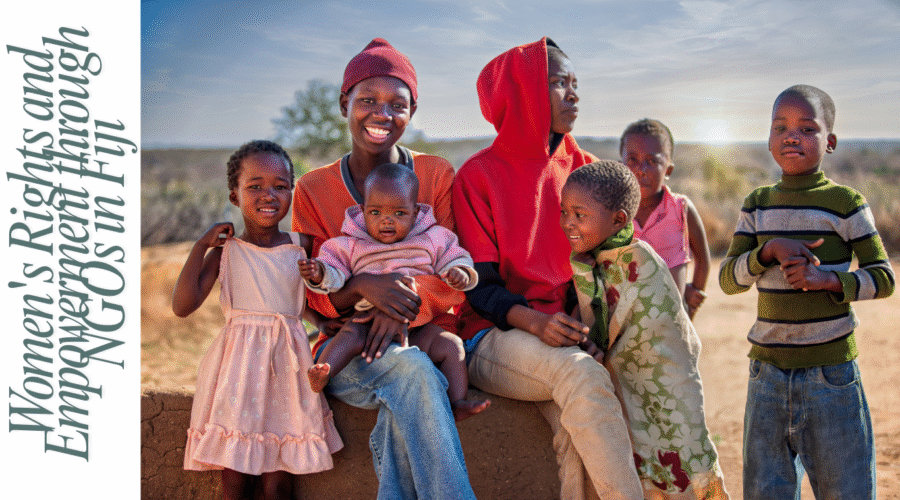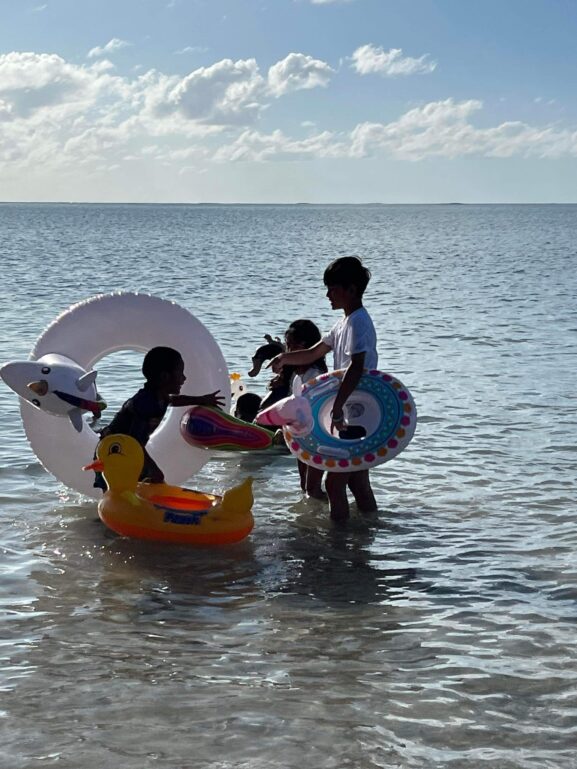Women’s Rights and Empowerment through NGOs in Fiji
Let’s discuss actual change. The kind that is quiet, uncompromising, and transformative—not the kind that is trumpeted with loudspeakers and flowery speeches. The kind that happens in small training centers, in neighborhood community centers, and in private conversations while sipping kava. This is the change being woven into the fabric of Fiji, stitch by careful stitch, by a collection of organizations utterly devoted to a single idea: unlocking the potential of women.
For a very long time, some of Fiji’s toughest problems lived in the shadows. Things like domestic violence and the struggle for economic independence were often treated as private family business. They were whispered about but rarely confronted out in the open. This silence created isolation and left generations of women without a clear path to safety or self-sufficiency. The weight of that silence was heavy.
But something shifted. From the bottom up, rather than the top down, a movement started to take shape. Local NGOs in Fiji are driving this movement and are radically altering the discourse.
Facing the Unspeakable: A Lifeline in the Darkest Hours
Look, it’s no secret—Fiji has a problem with violence against women. A really big one. Even while we don’t always express it out, we all sort of know it. It may be observed in the way certain people become more reserved while talking about specific topics. There are moments when you may sense the room become quite still.
Numbers are used, but they don’t capture the experience of being the lady who is lying up at three in the morning, her heart racing, wondering whether this is the night when things grow worse. They don’t capture that hollow, trapped feeling of having absolutely nowhere to go.
That’s where the Fiji Women’s Crisis Centre comes in. These aren’t people in fancy offices making posters. This job is sad, grim, and hands-on. It’s saying “I’m here” and turning up when everything is at its worst.
Think about their hotline. It’s just a phone number, right? But imagine for a second being scared, you can barely hold the phone in your hands, but you dial. And a voice answers. Not a robot. A person. A real, live human being who says, “I’m listening. Tell me what’s happening.”
In that moment, that voice isn’t just a service. It’s a rope thrown into a dark hole. It’s the first solid thing to hold onto when your whole world is falling apart. That’s what they do. They throw ropes.
But a phone call can’t fix everything. The real work starts the next morning. That’s when these groups really show up. They don’t just offer a sympathetic ear—they step right into the fight beside you.
After everything you’ve gone through, picture yourself in a courtroom. The legal jargon, the paperwork, and the frightening environment are enough to make anyone want to quit. But you’re not alone. When you need to share your experience, a center representative will sit next to you, assist you with paperwork, and provide clear explanations of everything. They help you navigate a system that seems to be set up to be confusing.
And after the court date ends, the healing begins. This isn’t some quick chat—it’s patient, ongoing work to help someone rebuild their sense of safety. We’re talking about helping women sleep through the night again. Helping them look in the mirror and recognize themselves. Helping them trust their own judgment after someone systematically tore it down.
The advocates and counselors who perform this work are not machines. At the end of the day, they bring stories home with them that would keep most people up at night. However, they return tomorrow. And the day after that. Because they’ve seen the alternative—women facing this darkness completely alone—and they’ve decided that’s not acceptable.
You should know—groups like the Crisis Centre aren’t alone in this. They’re part of a much wider patchwork of local people who’ve simply had enough. They’re teachers, farmers, mothers, and former cops who saw a crack in the system and decided to stand in it. A look at the broader NGO landscape in Fiji shows it clearly: this isn’t about outside saviors. This is Fijians showing up for Fijians.
It’s not glamorous work. A lot of these groups operate on pure grit and donated time. They run out of funding. They get tired. But they understand something essential: that a woman’s journey doesn’t end with a safe house. It continues to a job, to healthcare, to believing she has a future. So they talk to each other. They pass women along this quiet network of help—from the counselor to the microfinance officer to the midwife. It’s a chain of trust, and every single link matters.
What they’re really building, woman by woman, is a simple but radical idea: that nobody should have to face this kind of pain alone. Their message isn’t complicated. It’s just three things: This wasn’t your fault. You deserved better. And we’re not going anywhere.
Building Back Power: Why a Sewing Machine Can Be Revolutionary
Safety is the first step, but it is not the last. Imagine wanting to leave a dangerous situation but having absolutely no money of your own. No way to feed your children. No way to pay for rent. Economic dependence is one of the most effective cages there is.
Smart NGOs in Fiji figured this out a long time ago. They understood that empowerment needed to be practical. So they started teaching skills. Not abstract concepts, but real, tangible, income-generating skills.
We are talking about women learning to sew and starting their own small dressmaking businesses. We are talking about agricultural co-ops where women learn advanced farming techniques to grow stronger crops for both their families and the local market. They are taught financial literacy—how to manage the money they earn, how to save for a rainy day, and how to pitch a small business idea to a microfinance loan officer. These programs, run by dedicated Fiji NGOs, focus on what actually works in these communities, not some theoretical model from abroad.
The result is so much more than a new source of income. It is confidence. It is choices. A woman who can support herself walks differently. She speaks with a new authority in her home and her community. She is no longer trapped by circumstance. This is empowerment you can touch and hold. It is revolutionary in the most quiet, profound way. This practical, life-changing work is at the core of what drives so many NGOs in Fiji forward.
It All Comes Down to Health
You can’t really empower someone who isn’t healthy, let’s face it. It is comparable to attempting to construct a home on faulty foundations. A woman’s health issues make all other difficulties seem insignificant. As a result, these groups have expanded to encompass mental, spiritual, and physical health care.
In order to provide pregnant women with prenatal care near to their homes, mobile health clinics appear to be making their way to isolated communities. They appear to be secure areas where trauma survivors may open up about unseen wounds without fear of condemnation. It means honest conversations about reproductive health, where women receive factual information to make choices about their own futures.
This holistic approach changes everything. A healthy woman means flourishing, not simply getting by. She possesses the will to pick up new abilities, the discernment to go after opportunities, and the fortitude to take charge of her community.
Yes, the road ahead is still difficult. Organizations constantly juggle limited funds, cultural barriers, and the emotional toll of supporting people through their hardest moments. Progress often comes slower than anyone would like.
The important thing is that change is already happening. Everyday moments demonstrate it, such as the little retail enterprise started by a lady who had no prior source of income and the self-assured voices of schoolgirls who now aspire to be engineers and company owners. Not only is change imminent, but it is already occurring and spreading subtly but clearly everywhere.
They are discussing becoming engineers, managing businesses, and rising to positions of leadership. And you can feel it in villages where people are starting to have different, more respectful conversations about what women can do.
None of this happened by accident. This shift has been quietly fueled by the relentless work of local NGOs in Fiji. They’re the backbone of this change. They’re not just handing out services; they’re helping rebuild the entire foundation. These Fiji NGOs are working toward a Fiji where your daughter, your sister, and your mother can live safely, stand with dignity, and chase any opportunity she wants.
And honestly? That’s a future worth fighting for.



